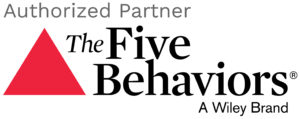Success is only possible when you have a greater commitment to achieve the goal than the consequences you will experience if you fail. Do you know the consequences if you fail? Are you willing to accept them? If you cannot live with them, your commitment is the means of overcoming them.

Commitment is transferable in all roles of your life. Commitment to play the role of a husband or wife, mother or father, salesperson or sales manager. And there are consequences of failure in every role.
Here are three areas to apply your commitment:
1) Goals. What is the goal of every activity? If your activity supports the goal, it is productivity. If it doesn’t, it is a distraction. Every step in the sales process has a goal. If you don’t know the goal, any result is acceptable. If you are calling on prospects, what is the goal of a phone call? Make an appointment; find out the decision making process; identify the current provider? Having more than one goal of an activity will give you a greater chance of achieving one when others fail. Success will be defined by achieving the goal.
2) Engagement. What are the different ways you can engage with prospects? Now that you met them, how do you stay in touch, with a purpose? It is never acceptable to call on a prospect and say, “I’m just touching base.” You are telling them, “I have no goal in our conversation. I’m just here to disrupt your day, so I can tell my boss I called on you.” By this action, you are telling the prospect what kind of service they can expect from you. Is that the message you want to be known for? Think of the different ways to engage your prospects, like inviting them to an association meeting, forwarding them a link to an article, sending them a book that made you think of them. I have done all of these and can tell you, it has been very beneficial to the relationship.
3) Tracking. What are you keeping track of? You cannot manage what you do not measure. Knowing your numbers means you know how much time you are wasting on unqualified prospects, you know what types of prospects are a perfect fit and ones that are misfits, you know what the steps are in the sales process and you know where each prospect is in the sales process. Track and measure everything.
Build a reputation of “doing it for real” – “being all in” – and “what have I got to lose.” Your actions are based on the risks. When the risks are low, you will have a greater chance to succeed. However, the risk of your own inaction are severe. You cannot win by not taking risks. You control your future by what you trade your time for. Consider the goal, different ways to engage and track the results. The greatest contributor to success is knowledge, action and commitment.







As I’ve come to expect, Scott Plum is once again spot-on in this posting. I look for 4 C’s when I am hiring an enterprise software sales pro by uncovering how Committed, Capable, Competitive and Coachable they are. If they set goals, are creative in their pursuits and comfortable being measured and held accountable then we are likely to succeed. Thanks Scott.
Thanks Mark. I appreciate your comment!
One of the most important things I’ve learned in my career is that people like Scott who share their knowledge (real teachers) know more than I do. Anytime I am faced with a challenge I always ask myself what would someone like Scott do in this sales situation – having been exposed to Scott’s ideas a little, I am certain that sometimes the only thing a teacher needs to do is remind us of what we know.
Thanks Scott.